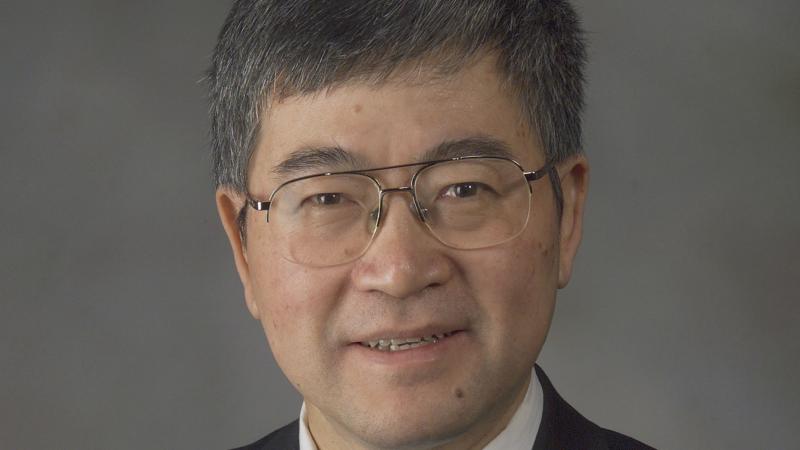January 14, 2022

Ge Wang, the Clark & Crossan Chair Professor of Biomedical Engineering at Rensselaer Polytechnic Institute, has been honored by SPIE, the international society for optics and photonics, with a prestigious 2022 society award, announced January 11. Dr. Wang received the society’s Aden and Marjorie Meinel Technology Achievement Award “in recognition of his pioneering contributions in X-ray and optical molecular tomography, including their coupling for biomedical applications.”
SPIE brings engineers, scientists, students, and business professionals together to advance light-based science and technology. The society recognized 21 award recipients for transformative advancements in multiple areas, including medicine, astronomy, lithography, optical metrology, optical design, and community leadership.
“Ge’s work improves our ability to see inside the body, aiding countless people suffering from illness and disease with more accurate, and less invasive, diagnosis and treatment options. We congratulate him on this honor,” said Juergen Hahn, head of the Department of Biomedical Engineering at Rensselaer.
Dr. Wang, the director of the Biomedical Imaging Center at Rensselaer, is a medical imaging scientist with an emphasis on computed tomography (CT), multimodality imaging, and artificial intelligence, especially deep learning. He pioneered the spiral cone-beam CT method, leading to a major impact on the CT field. Each year, a majority of about 200 million medical CT scans are produced using this scanning mode. Since 2016, his team and collaborators have been promoting and realizing a roadmap on deep tomographic imaging, with major results on deep denoising, deep reconstruction, and deep radiomics.
Among other honors, Dr. Wang is a lifetime fellow of the National Academy of Inventors, a fellow of the American Association for the Advancement of Science, a fellow of the American Association of Physics in Medicine, a fellow of the Optical Society of America, a lifetime fellow of the International Society for Optical Engineering, and a fellow of the Institute of Electrical and Electronics Engineers (IEEE). In 2021, he received the IEEE EMBS Academic Career Achievement Award for “pioneering contributions on cone-beam tomography and deep learning-based tomographic imaging” and the IEEE Region 1 Outstanding Teaching Award “for development of the first graduate and undergraduate deep learning-based medical imaging courses at Rensselaer Polytechnic Institute.”